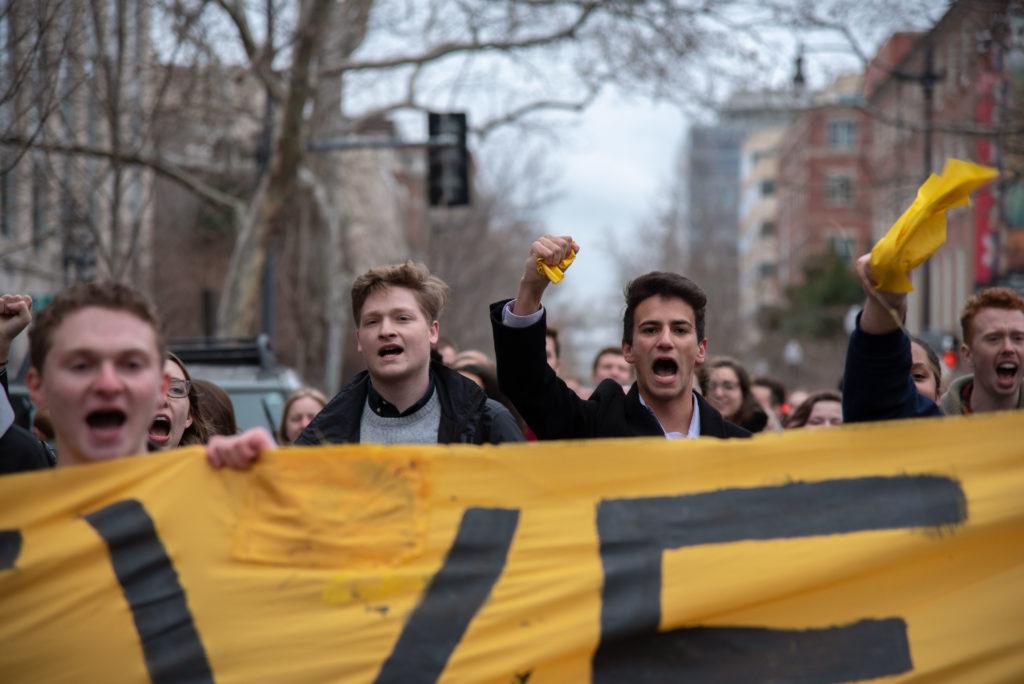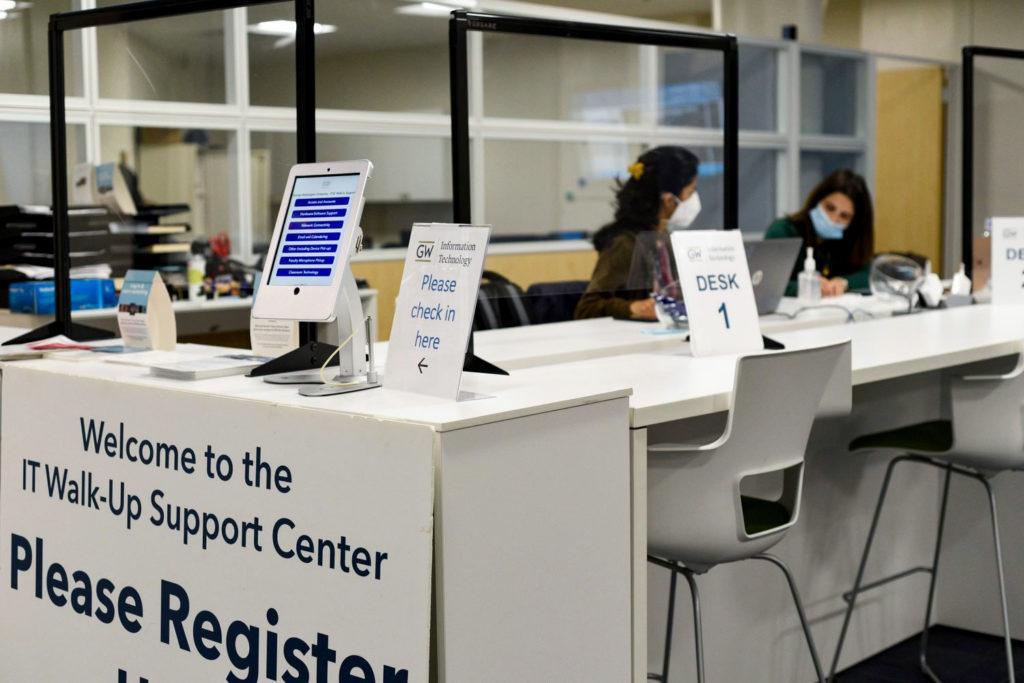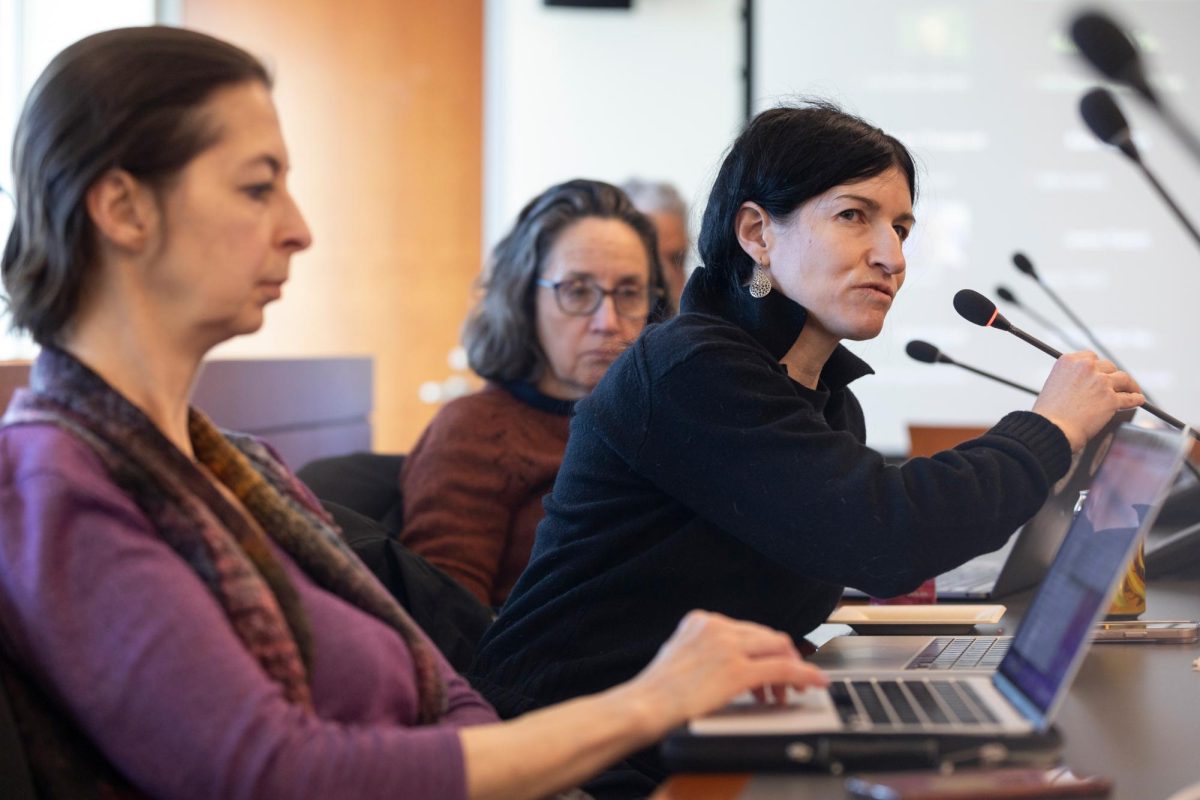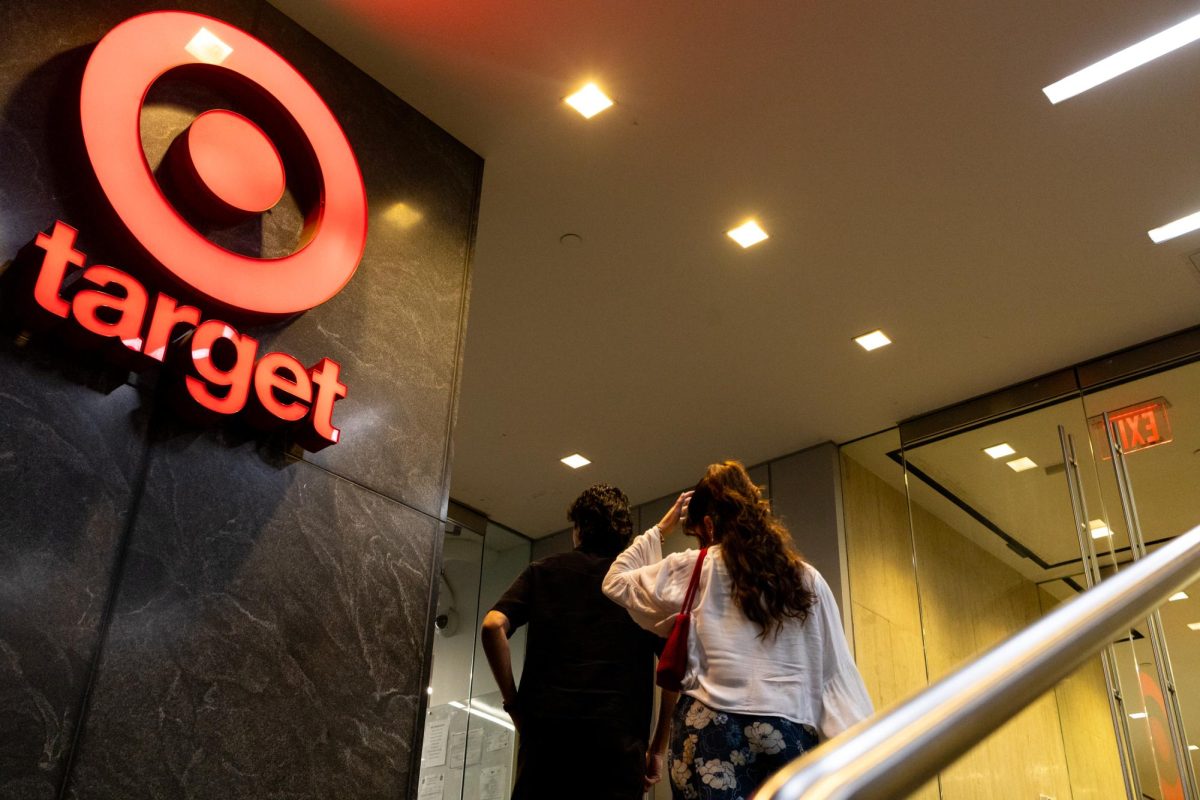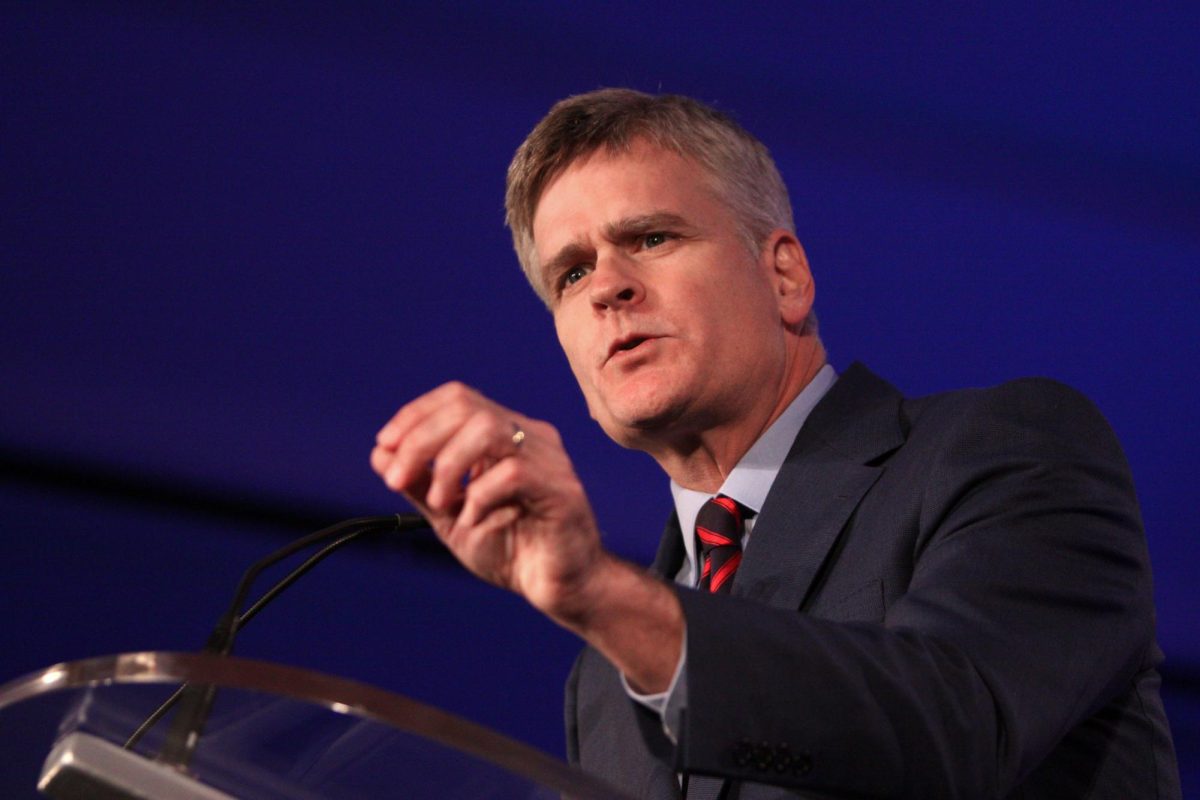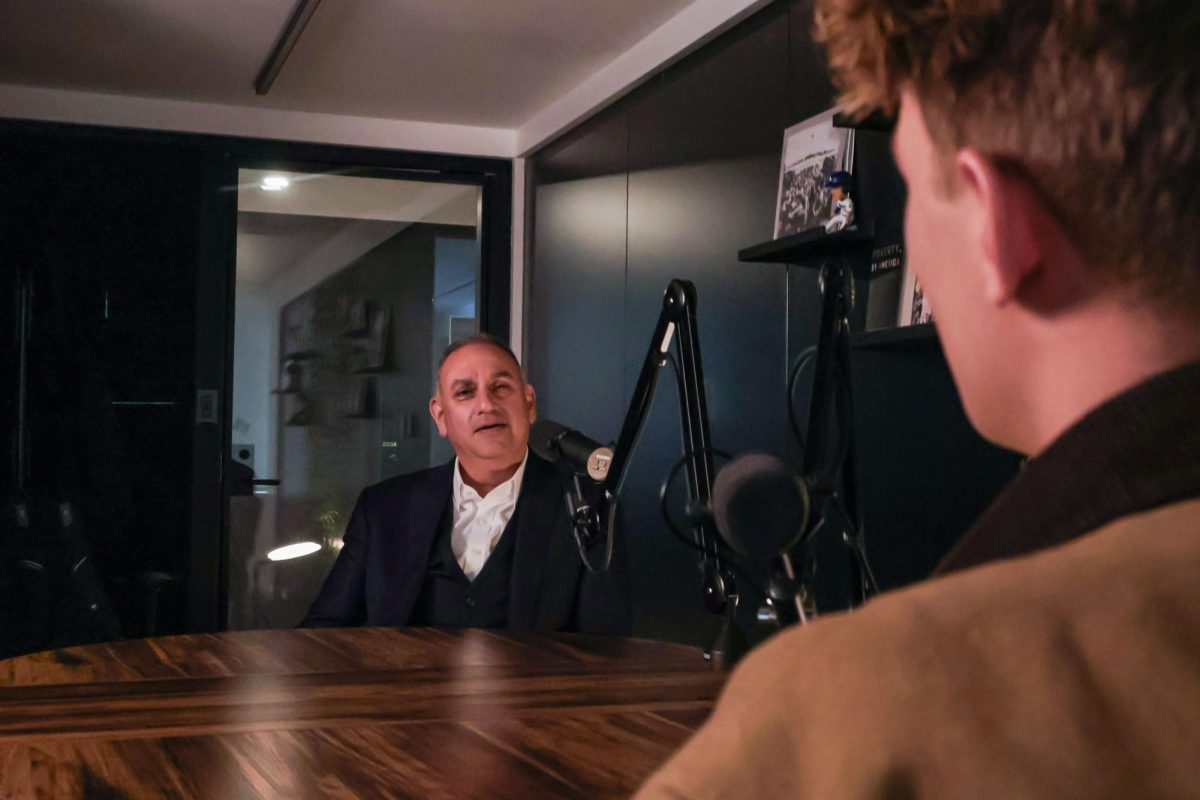Improving the student experience was one of University President Thomas LeBlanc’s consistent talking points during his time at GW, but student leaders said his decisions leading up to his retirement announcement last week failed to prioritize student interests.
As faculty pushed back on LeBlanc’s 20/30 Plan and budget cuts, many students joined calls for his resignation, emphasizing racially insensitive comments and underwhelming, dilatory progress toward environmental action as evidence of his leadership failures. In interviews, half a dozen student leaders said LeBlanc’s recent announcement that he would depart GW after his contract expires comes on the heels of contentious relationships with their student organizations, marked by more than 40 student organizations’ demand for his resignation.
Student Association President Brandon Hill said LeBlanc made himself available to SA leaders through phone calls and text messages during Hill’s time as president, but the student body was “looking” for more conversations with LeBlanc throughout the past four years. He said LeBlanc’s lack of direct conversations with the student body may have created a “stagnant” relationship between students and administrators.
“Students are looking for more interactions with him and although they have increased throughout this time, I think that students are still craving that increased transparency,” Hill said.
Hill’s predecessor, Howard Brookins, had signed an executive order last September – while Hill was serving as the group’s executive vice president – calling for the GW community to suspend donations to the University until LeBlanc’s departure.
The move was met with criticism from the SA Senate, which abrogated Brookins’ order days later, and trustees. Hill has spent time rebuilding relationships with trustees, saying he views them as a partner.
The senate passed a resolution urging LeBlanc to resign last fall, citing nearly 30 incidents including GW’s criticized partnership with the Disney Institute and the exclusion of sustainability as a pillar of his strategic plan.
Hill said he will continue to meet with LeBlanc monthly next academic year to “better the student experience” through conversations about initiatives like welcoming students back to campus. He said the installment of an 18th credit for undergraduate students in 2018 was one of LeBlanc’s most impactful achievements because it allowed more students to graduate early and double major without taking on additional financial burden.
Hill said Board of Trustees Chair Grace Speights told him student input will be a “critical step” in the hiring process of the next University president. Hill said SA leadership previously attended focus groups and interviews with the Board when hiring LeBlanc in 2017, and he hopes to continue that collaboration next academic year.
“After speaking with President LeBlanc, it seems that next year we’ll continue to go full steam ahead, and he still looks forward to hearing our ways and collaborating on ways to better the student experience, even in his final days,” Hill said.
LeBlanc declined to comment on his communication with students throughout his time at GW. LeBlanc said in his announcement that the University needs a president to serve its “long-term strategic direction” to mitigate the transition to a “new normal” as students return to campus.
SA Sen. Cordelia Scales, SEAS-U and senate chairperson pro tempore, said the hiring of Heather Swain as the vice president for communications pushed Scales to call for LeBlanc’s resignation because Swain would cause an unsafe campus environment. Swain rescinded her acceptance of GW’s offer following wide criticism for shielding information at Michigan State University from investigators during the Larry Nassar sexual abuse case.
Scales said LeBlanc’s 20/30 Plan to cut enrollment also “did not sit right” with her because it would have decreased diversity within the student body.
“It probably would have made our campus much wealthier and Whiter, which is an issue,” Scales said. “Diversity is good. Diversity of thought is a beautiful thing. It helps us see the world as it really is.”
Rising senior Joe Markus, a founding member of Sunrise GW, said members of Sunrise “never” liked LeBlanc because of the “racist” comments he made in a video discussing fossil fuel divestment and the pressure needed for him to agree to support divesting.
In the video taken by a member of Sunrise last February, LeBlanc compared support for fossil fuel divestment to hypothetical support for shooting “all the Black people here.” Markus said he found the “racist” comments in the video to be “ignorant” and “harrowing,” serving as a testimony to LeBlanc’s character.
“There was a feeling among the members that he was never operating in good faith with us for students or really anyone who was seeking reform to the University,” he said.
The incident sparked a week of demonstrations from student activists pushing for divestment. The Board voted to begin divesting GW’s endowment from fossil fuels in June.
During the past two years, Sunrise has pressured LeBlanc through protests, demonstrations and letters to divest from fossil fuels and dismantle the Regulatory Studies Center.
Sunrise called for LeBlanc to step down in September, saying the organization had no confidence in his leadership and needed to pressure him to resign in hopes of pursuing climate justice coupled with racial, gender and economic justice.
Markus said LeBlanc will be remembered as the first GW president to commit to divestment from fossil fuels, but added that he had to be “forced” into that position through a very “broad and enthusiastic” movement on campus. He said Sunrise was never able to receive a “trustworthy” number from LeBlanc as to how much money GW had invested in fossil fuels.
Markus said after LeBlanc retires in 2022, he hopes the next president will work with student organizations in “good faith” and receive support from the student body.
“When they write the history of Thomas LeBlanc’s tenure as GW president, they will say he oversaw fossil fuel divestment, but if you actually examine the facts of what happened, LeBlanc was consistently trying to either slow us down or stop us without explicitly coming out in favor of fossil fuel investments,” he said.
Rising sophomore Tess Klugewicz, the president of GW Students for D.C. Statehood and a former Hatchet reporter, said she was happy to see LeBlanc’s announcement of his departure next year. She said he prioritized finances over students, restricting a 10 percent tuition discount from students living on campus during the COVID-19 pandemic.
“There’s a lot of problems that I see with him, especially being just a plain and simple and ineffective leader in my opinion,” Klugewicz said. “Especially during the pandemic, it’s easy to see that he runs GW like a business rather than an educational institution with little regard for student interests or needs.”


